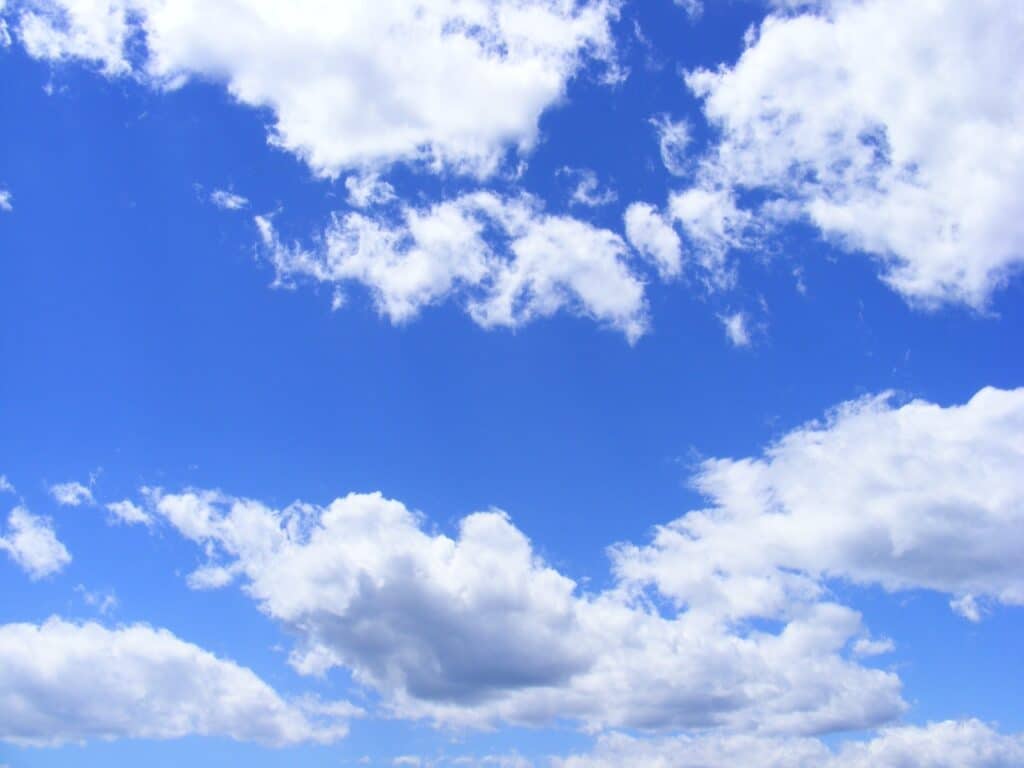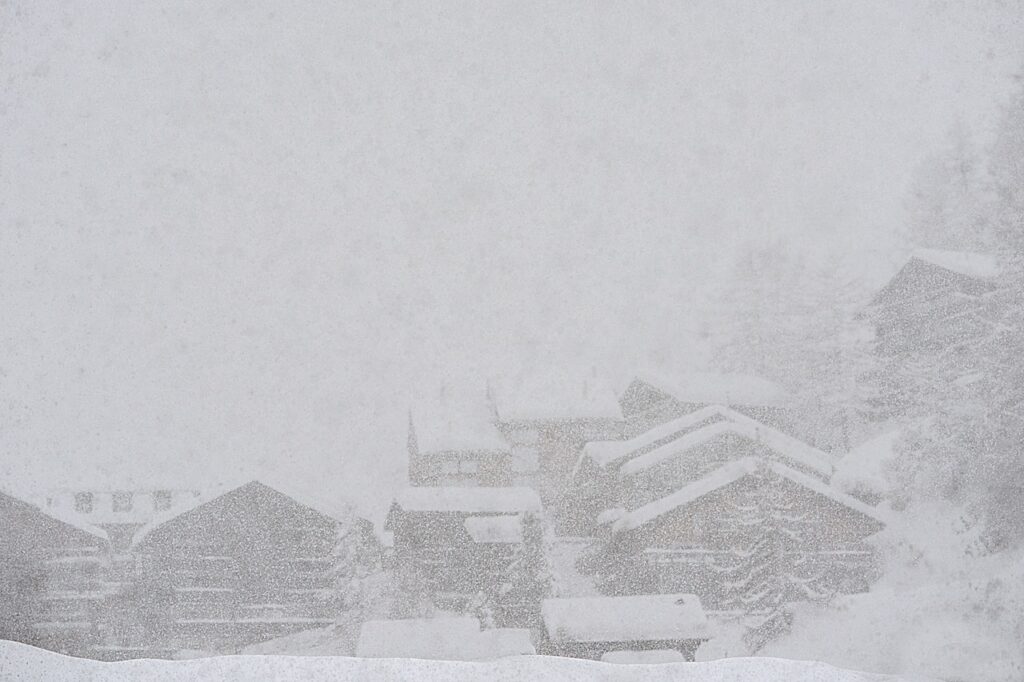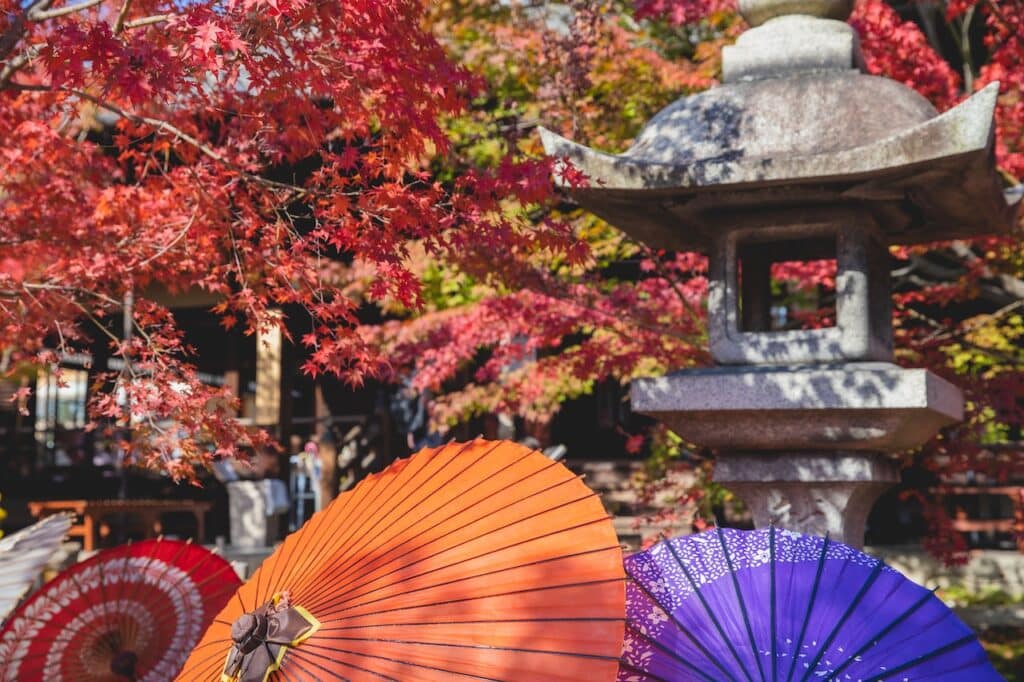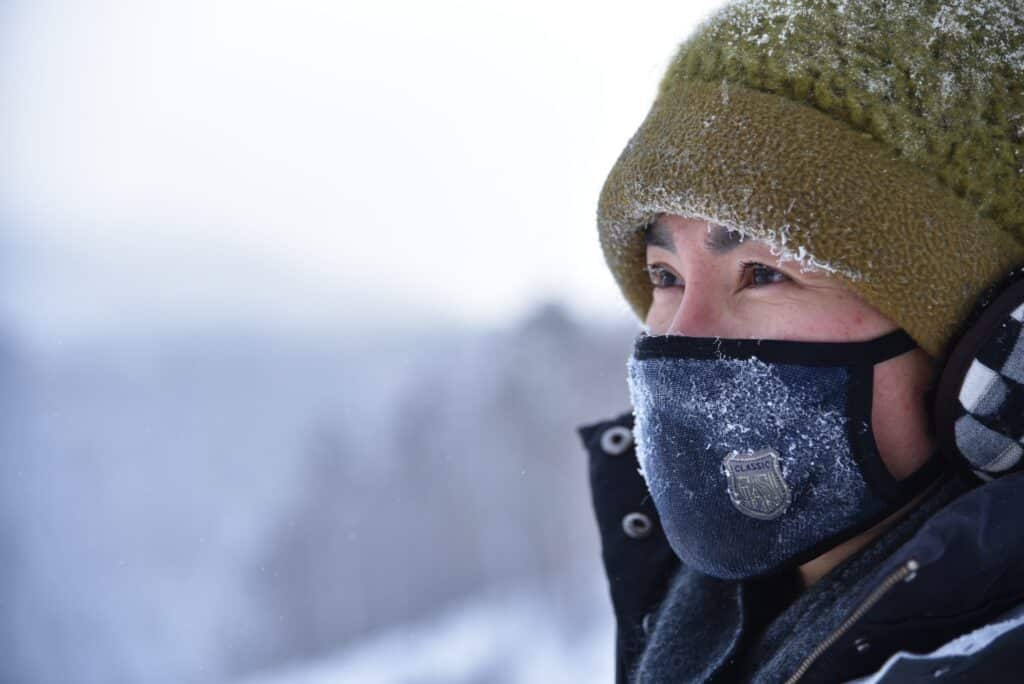
Weather in Japanese: 36 Useful Words for Describing Temperature, Seasons and More
Weather makes a great ice-breaker—even in Japanese, where it’s called 天気 (tenki).
Awkward silence? Mention the storm coming in.
Not sure what to say on the phone to your relative who lives far away? Compare the temperature.
Weather is definitely a great way to start talking to people, so here are some vocabulary words for weather in Japanese!
Download: This blog post is available as a convenient and portable PDF that you can take anywhere. Click here to get a copy. (Download)
Contents
- 1. 雲 (くも) — clouds
- 2. 天気 (てんき) — weather
- 3. 天気予報 (てんき よほう) — weather forecast
- 4. 虹 (にじ) — rainbow
- 5. 雨 (あめ) — rain
- 6. 酸性雨 (さんせい う) — acid rain
- 7. 雹 (ひょう) — hail
- 8. 雷 (かみなり) — thunder
- 9. 雷雨 (らいう) — thunderstorm
- 10. 落雷 (らくらい) — lightning
- 11. 嵐 (あらし) — storm
- 12. 暴風 (ぼうふう) — hurricane
- 13. 洪水 (こうずい) — flood
- 14. 台風 (たいふう) — typhoon
- 15. 津波 (つなみ) — tsunami
- 16. 大雪 (おおゆき) — blizzard
- 17. 霙 (みぞれ) — sleet
- 18. 氷 (こおり) — ice
- 19. 雪 (ゆき) — snow
- 20. 気温 (きおん) — temperature
- 21. 霧 (きり) — fog
- 22. 風 (かぜ) — wind
- 23. 強風 (きょうふう) — intense wind
- 24. 季節 (きせつ) — season
- 25. 春 (はる) — spring
- 26. 夏 (なつ) — summer
- 27. 秋 (あき) — fall
- 28. 冬 (ふゆ) — winter
- 29. 暖かい (あたたかい) — warm
- 30. 寒い (さむい) — cold
- 31. 暑い (あつい) — hot
- 32. 晴れ (はれ) — sunny
- 33. 晴天 (せいてん) — clear skies
- 34. 曇り (くもり) — cloudy
- 35. 冷たい (つめたい) — icy/stingy
- 36. 蒸し暑い (むしあつい) — humid/balmy
1. 雲 (くも) — clouds

In the early summer, sightseeing events that involve being above the clouds are very popular in Japan.
私はハート型の雲を見た。
(わたし は はーとがた の くも を みた。)
I saw heart shapes in the clouds.
2. 天気 (てんき) — weather
外の天気は恐ろしい。
(そと の てんき は おそろしい。)
The weather outside is frightful.
3. 天気予報 (てんき よほう) — weather forecast
今日の天気予報を聞きましたか?
(きょう の てんき よほう を ききました か?)
Have you heard the weather forecast for today?
4. 虹 (にじ) — rainbow
In ancient Japan, rainbows were believed to be ethereal bridges that ancestors took to return to Earth.
あれは二重の虹だ!
(あれ は にじゅう の にじ だ!)
It’s a double rainbow!
5. 雨 (あめ) — rain
The 雨 kanji sort of looks like rain under an umbrella, doesn’t it?
私は雨の香りが大好きです。
(わたし は あめ の かおり が だいすき です。)
I love the smell of rain.
6. 酸性雨 (さんせい う) — acid rain
Although acid rain isn’t as much of a problem today thanks to effective legislation, it’s still an issue in China and the surrounding areas, including Japan.
酸性雨に注意してください。
(さんせいう に ちゅうい して ください。)
Please be wary of the acid rain.
7. 雹 (ひょう) — hail

以前、日本で非常に激しい雹の嵐が発生しました。
(いぜん、にほん で ひじょう に はげしい ひょう の あらし が はっせい しました。)
There was once a very intense hail storm in Japan.
8. 雷 (かみなり) — thunder
神道には雷の神がいます。
(しんとう に は かみなり の かみ が います。)
There is a god of thunder in the Shinto religion.
9. 雷雨 (らいう) — thunderstorm
It makes sense that 雷雨 simply consists of the characters for “thunder” and “rain” put together.
私の犬は雷雨を怖がります。
(わたし の いぬ は らいう を こわがります。)
My dog is afraid of thunderstorms.
10. 落雷 (らくらい) — lightning
落雷はまれです。
(らくらい は まれ です。)
Lightning strikes are rare.
11. 嵐 (あらし) — storm

明日は嵐のはずだ。
( あした は あらし の はず だ。 )
We are due for a storm tomorrow.
12. 暴風 (ぼうふう) — hurricane
暴 essentially means “violent” and 風 means “wind.”
暴風は海から来ます。
(ぼうふう は うみ から きます。)
Hurricanes come from the ocean.
13. 洪水 (こうずい) — flood
排水が不十分だと、洪水の原因になる。
(はいすい が ふ じゅうぶん だと、こうずい の げんいん に なる。)
The drainage is insufficient and causes floods.
14. 台風 (たいふう) — typhoon
台風が日本を襲った。
(たいふう が にほん を おそった。)
A typhoon has struck Japan.
15. 津波 (つなみ) — tsunami
The Great Sendai Earthquake and tsunami in 2011 was one of the biggest natural disasters that Japan has ever experienced.
日本は津波の影響を受けやすい。
(にほん は つなみ の えいきょう を うけ やすい。)
Japan is susceptible to tsunamis.
16. 大雪 (おおゆき) — blizzard

彼女は大雪で立ち往生した。
(かのじょ は おおゆき で たちおうじょう した。)
She was stuck in the blizzard.
17. 霙 (みぞれ) — sleet
激しい霙が何日間も続いた。
(はげしい みぞれ が なんにちかん も つづいた。)
The heavy sleet lasted for days.
18. 氷 (こおり) — ice
歩道には氷があります。
(ほどう に は こおり が あります。)
There is ice on the sidewalk.
19. 雪 (ゆき) — snow
It rarely snows in Japan’s major cities, but you can travel to super snowy rural destinations in Japan during the winter months.
雪は柔らかいです。
(ゆき は やわらかい です。)
The snow is soft.
20. 気温 (きおん) — temperature
京都の気温を知っていますか?
(きょうと の きおん を しって います か?)
Do you know the temperature in Kyoto?
21. 霧 (きり) — fog
霧で前が見えない。
(きり で まえ が みえない。)
I cannot see through the fog.
22. 風 (かぜ) — wind

The Shinto religion has a Japanese god of wind who’s depicted as a horrifying green lizard-wizard-demon who wears a leopard skin.
風が気持ちいいです。
(かぜ が きもち いい です。)
The wind is pleasant.
23. 強風 (きょうふう) — intense wind
私達はこの強風に吹き飛ばされてしまう。
(わたしたち は この きょうふう に ふきとばされて しまう。)
This intense wind will blow us away.
24. 季節 (きせつ) — season
季節は変化しています。
(きせつ は へんか して います。)
The season is changing.
25. 春 (はる) — spring
Japanese cherry blossom festivals always take place in spring around April.
春の匂いがする!
(はる の におい が する!)
Spring is in the air!
26. 夏 (なつ) — summer
夏はとても暑いです。
(なつ は とても あつい です。)
Summer is very hot.
27. 秋 (あき) — fall

私は秋の色が大好きです。
(わたし は あき の いろ が だいすき です。)
I love the colors of fall.
28. 冬 (ふゆ) — winter
While it might not seem like a good idea to visit an island in the winter, Japan actually has a ton of great things to see during this cold time of year.
冬に雪が降るといいな。
(ふゆ に ゆき が ふる と いいな。)
I hope there will be a white winter.
29. 暖かい (あたたかい) — warm
私は暖かい気候の方が好きだ。
(わたし は あたたかい きこう の ほう が すきだ。)
I prefer a warm climate.
30. 寒い (さむい) — cold
私の家はとても寒いです。
(わたし の いえ は とても さむい です。)
My house is so cold.
31. 暑い (あつい) — hot
The hottest it’s ever been in Japan was 106 degrees in July 2018.
私達は暑い夏を過ごしました。
(わたしたち は あつい なつ を すごしました。)
We have had a hot summer.
32. 晴れ (はれ) — sunny

明日は晴れでしょう。
( あした は はれ でしょう。 )
It will be sunny tomorrow.
33. 晴天 (せいてん) — clear skies
晴天の中、凧揚げをするのは最高だ。
(せいてん の なか、たこあげ を する の は さいこうだ。)
Clear skies are best for kite-flying.
34. 曇り (くもり) — cloudy
私は曇りの日が大好きです。
(わたし は くもり の ひ が だいすき です。)
I love cloudy days.
35. 冷たい (つめたい) — icy/stingy

冷たい空気が顔を突き刺した。
(つめたい くうき が かお を つきさした。)
Icy air stung my face.
36. 蒸し暑い (むしあつい) — humid/balmy
彼は蒸し暑い日に散歩に行きました。
(かれ は むしあつい ひ に さんぽ に いきました。)
He went for a walk on a balmy day.
Get a load of all those weather words! Most of these words are relatively simple to remember, so it won’t be that hard to study them and use them in the future. Use the FluentU program to get even more context on weather vocabulary, through native Japanese videos.
FluentU takes authentic videos—like music videos, movie trailers, news and inspiring talks—and turns them into personalized language learning lessons.
You can try FluentU for free for 2 weeks. Check out the website or download the iOS app or Android app.
P.S. Click here to take advantage of our current sale! (Expires at the end of this month.)

We hope your studies are fruitful and your afternoon is 晴れ (sunny)!
Download: This blog post is available as a convenient and portable PDF that you can take anywhere. Click here to get a copy. (Download)
And One More Thing...
If you love learning Japanese with authentic materials, then I should also tell you more about FluentU.
FluentU naturally and gradually eases you into learning Japanese language and culture. You'll learn real Japanese as it's spoken in real life.
FluentU has a broad range of contemporary videos as you'll see below:

FluentU makes these native Japanese videos approachable through interactive transcripts. Tap on any word to look it up instantly.

All definitions have multiple examples, and they're written for Japanese learners like you. Tap to add words you'd like to review to a vocab list.

And FluentU has a learn mode which turns every video into a language learning lesson. You can always swipe left or right to see more examples.

The best part? FluentU keeps track of your vocabulary, and gives you extra practice with difficult words. It'll even remind you when it’s time to review what you’ve learned. You'll have a 100% personalized experience.
Start using the FluentU website on your computer or tablet or, better yet, download the FluentU app from the iTunes or Google Play store. Click here to take advantage of our current sale! (Expires at the end of this month.)


